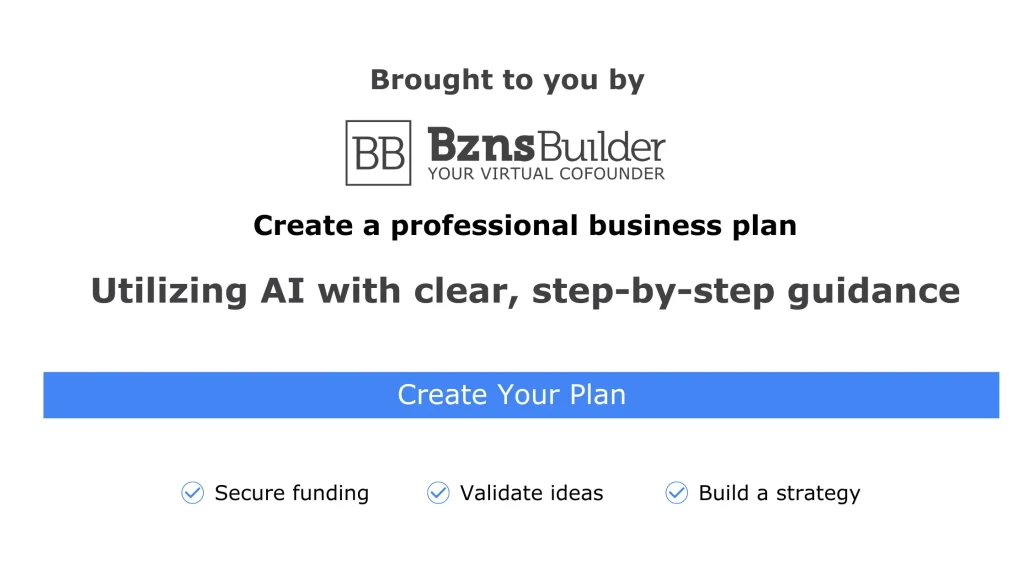Simple Steps to a Winning Business Idea

Some entrepreneurs naturally excel at generating business ideas, while others find it more challenging. However, embarking on a business venture without a solid concept can make the journey significantly more difficult.
The encouraging news is that with the right approach and consistent practice, you can enhance your ability to develop innovative business ideas.
This guide will walk you through effective strategies to brainstorm numerous business concepts and discern the qualities that constitute a strong idea. Additionally, we’ve compiled curated lists of potential business ideas for you to consider. If you’re seeking further inspiration, explore this comprehensive guide to small business ideas. Let’s begin!
How to Come Up with a Good Business Idea
Developing a compelling business idea involves exploring various approaches to discover what resonates. Here are some effective methods to help you uncover your next big idea:
1. Solve a Problem
Successful businesses address real-world problems. To identify such issues:
- Reflect on personal challenges: Consider difficulties you’ve encountered in your own life.
- Engage with your network: Discuss with friends, family, or colleagues to learn about their pain points.
- Explore online communities: Browse forums and social media platforms to find common frustrations.
- Conduct surveys: Gather insights directly from potential customers.
Once you’ve pinpointed persistent problems, brainstorm potential solutions. This process can lead to business ideas that fulfill genuine needs and attract eager customers.
2. Talk to Family and Friends
Generating ideas can be challenging in isolation. Involving trusted individuals can provide fresh perspectives.
- Share your aspirations: Discuss your goal of starting a business and seek their input.
- Seek diverse viewpoints: They might identify market gaps, share personal challenges, or suggest ways to leverage your skills.
Collaborating with others not only sparks new ideas but also opens avenues for support, such as advice, funding, or partnerships.
For further guidance on evaluating your business model’s viability, consider reviewing this 8-point test.
3. Make Tasks Easier
Some of the best and most profitable businesses solve simple, everyday problems by making basic tasks easier or more efficient.
To identify these overlooked pain points, reflect on your daily routine:
- What tasks do you find tedious or frustrating?
- What activities take up your time but add little value to your day?
These small but impactful issues often present opportunities for innovation. For more inspiration, explore examples of everyday problems turned into businesses.
4. Build on an Existing Product or Service
You don’t have to create something brand new to build a successful business. Instead, consider improving an existing product or service.
Look for ways to:
- Enhance the design or functionality.
- Add new features that customers value.
- Reintroduce the product to a market that’s currently underserved.
Ask yourself: How can this be made simpler, more enjoyable, or more affordable? Even minor improvements can transform something ordinary into something exceptional. Learn how to analyze market demand in our guide on business planning strategies.
5. Start with a Hobby
Your hobbies and passions can be an excellent starting point for business ideas. Whether it’s baking, photography, gardening, or crafting, your skills can become the foundation of a profitable venture.
To start:
- Explore ways to monetize what you already enjoy doing.
- Test the waters with a side hustle to minimize risk and gain experience.
Learn how to balance costs and pricing in our blog on financial forecasting for small businesses.
6. Jump on a Trend
Emerging trends often present exciting business opportunities. Whether it’s a new technology, a popular fashion trend, or evolving consumer behaviors, staying ahead of the curve can be highly rewarding.
However, be mindful of these challenges:
- Trends may cater to small or niche markets initially. You might need to educate your audience and demonstrate the value of your product or service.
- Competitors will likely emerge as the trend grows. Build brand loyalty early to maintain your edge.
Explore strategies to leverage trends in our article on business idea validation.
7. Innovate
Innovation involves thinking outside the box to create something entirely new or improve upon existing ideas. This approach requires creativity and a willingness to take risks, but it can lead to groundbreaking business ideas.
Keep in mind:
- Your idea may not have a market yet, but if you believe in its potential and can convince others, you might be leading an untapped movement.
- Stay open to feedback and iterate on your concept as you develop it.
For additional tips, check out ways to foster innovation and see how entrepreneurs use business planning tools to refine their ideas.
What Are the Qualities of a Good Business Idea?
While no business idea is genuinely perfect, certain qualities can indicate whether an idea is worth pursuing and has the potential to succeed. Here are the key traits of a good business idea:
1. Clear Market Demand
There must be a real need for your product or service. At a minimum, your idea should solve a problem or fulfill a need for your target customers.
But that’s just the beginning:
- Will people pay for a solution?
- Can your idea disrupt or improve upon existing alternatives?
If the answer is “no” to either question, it may not be the best idea to pursue.
Learn more about validating business ideas to ensure there’s a real market demand.
2. Scalable and Profitable
Scalability and profitability are closely tied.
- Scalability means your idea can:
- Attract more customers.
- Handle growing demand.
- Reduce costs as the business expands.
- Profitability means the business generates more revenue than expenses. While profitability might take time, a good business idea should demonstrate the potential to scale and achieve profitability over time.
If your idea cannot attract more customers or reduce costs as it grows, maintaining profitability will be a challenge.
Check out our guide on financial forecasting to assess the profitability of your idea.
3. Fits Your Goals
A good business idea aligns with your personal and professional goals. Ask yourself:
- Do you want to monetize a passion?
- Are you aiming for fast growth to sell the business?
- Do you want to create a lasting legacy to pass on?
Not every business idea will suit your long-term motivations. Choosing one that aligns with your goals will make it easier to stay committed and navigate challenges.
For guidance on setting entrepreneurial goals, visit Entrepreneur’s guide to goal-setting.
By focusing on these qualities—market demand, scalability, profitability, and goal alignment—you can ensure your business idea has the foundation for success. Let us help you develop and refine your idea with BznsBuilder’s tools.
Coming Up With an Idea Is Just the First Step
Having a business idea is an exciting milestone, but it’s only the beginning of the journey. The next critical step is validating whether your idea can truly work in the real world.
This involves engaging with potential customers to understand their needs, running small tests to gauge interest, and diving into the financial details to assess feasibility. While this may seem daunting, these steps are essential to determine if your idea has what it takes to succeed.
Take a moment to celebrate how far you’ve come—sorting through countless possibilities to land on an idea you’re passionate about is no small feat. Now it’s time to explore whether your concept can grow into a legitimate and sustainable business. With the right approach, you’ll be equipped to turn your idea into reality.







